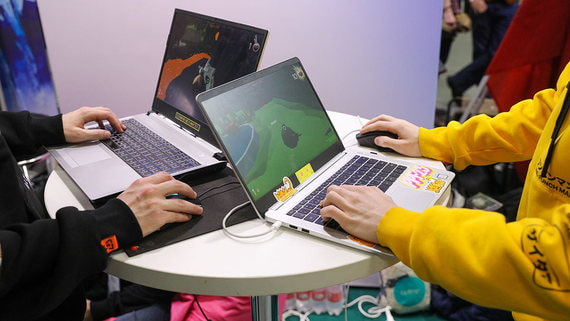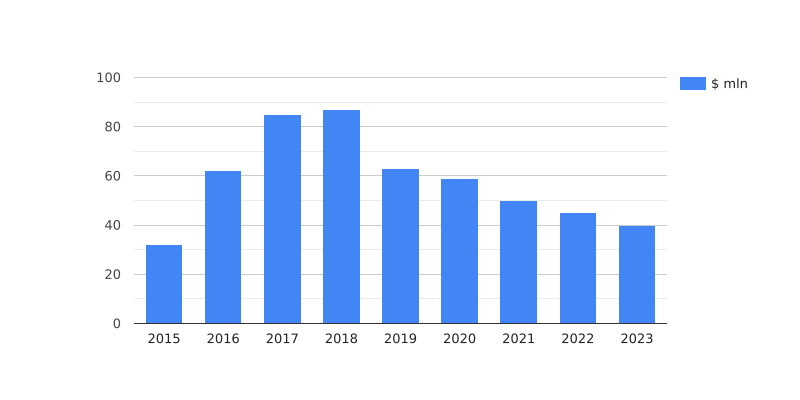It rose by 4 percentage points for gamers who used pirated copies.

More than 324 billion rubles worth of pirated (unlicensed) game copies were acquired by Russian gamers in 2023. Over two-thirds of all gamers played at least one illegal copy on their computers, a rise from 69% in 2022. Over 8% of gamers utilized more than 10 unauthorized games. The highly popular video games in this gray area were Atomic Heart, Hogwarts Legacy, and Baldur’s Gate 3, with over 84% of pirates downloading at least one of them. This data was shared with Vedomosti by Emma Yusova, the operational director of the online school geimdeva XYZ School.
The information was obtained from a survey of over 1,000 Russian gamers and an analysis of the market condition, as explained by Yusova. The study considered all unauthorized game formats, with a majority being games acquired from torrent trackers, according to Yusova. XYZ School approximates the number of gamers in Russia to be around 25 million.
In 2023, another trend emerged, stated Yusova. In the absence of access to international payment systems, gamers first tested unauthorized game versions, and subsequently, if satisfied, purchased an official copy through intermediary services (Kupikod, etc.) or from official stores like VK Play, she elaborated. Konstantin Sakhnov, co-founder of Vengeance Games studio, agreed, mentioning that many download the illegal version to evaluate the game prior to making official purchases. “Hence, the actual damage to the industry may be lower, but an exact figure is difficult to pinpoint,” added Yusova.
VK Play representatives refused to comment.
Experts interviewed by Vedomosti have reservations about the estimate of the Russian pirate market at 324 billion rubles, considering it to be somewhat exaggerated.
The volume of the online piracy market in Russia – Graph

Assessing any shadow sector of the economy is extremely challenging since pirates do not maintain any statistics, and pinpointing torrent trackers is incredibly difficult, stated Alexander Kuzmenko, an independent games expert. He clarified that the gaming market encompasses not only PC games but also online products and consoles, where piracy is inherently impossible.
“Even prior to the imposition of sanctions by payment systems, according to Newzoo, Russians were spending around 250-300 billion rubles annually on games, with an additional 50-80 billion rubles within the gray segment,” stated Sakhnov. He indicated that due to a significant portion of players moving to the gray segment following the sanctions, the volume of the underground market in Russia could hit 250 billion rubles in 2023.
However, the extent of piracy may be even greater, as reliably calculating the segment is challenging, according to Vasily Ovchinnikov, head of the Video Game Industry Development Organization. “Piracy is a global problem. In 2023, the USA and India were the leaders in pirated content, with Russia also ranking among the top three. Many games have gained popularity among gamers primarily due to piracy,” he argued.
There was a 24% decrease in the mean price of a perfume container in Russia
The surge in piracy is a consequence of widespread rejection by global platforms and developers to engage with Russian gamers and businesses, elucidated Haji Maktiev, owner of the gaming portals “Kanobu” and “Igromania”. Conversely, he stated that this increase is a logical response from end consumers to the “ban” and is linked to the feeling of being unrestricted in terms of adhering to moral norms. “The Russian gaming industry had previously undergone a similar stage [of piracy] in the mid-noughties, and it took a considerable time for gradual improvement. The regression to the ‘pirate mentality’ is significantly faster.””Instead of the process of evolution,” Maktiev remarks.
As stated by Sakhnov, piracy stems from three causes. The first being economical constraints, he asserts: “Some games have a price tag of 8,000–10,000 rubles per unit, which is quite steep for the average gamer.” “Another factor is the erosion of consumer culture. Over the years, Russian publishers have been striving to educate people to shop exclusively in the legitimate sector – with taxes, warranties, and technical support. This is now unattainable,” states the expert. “The third factor is the restrictions imposed by payment systems.” Kuzmenko agrees that it’s often simpler to download through a torrent than to attempt intricate maneuvers for funding accounts through official stores in a circuitous manner.
According to Sakhnov, for most game developers, departing from Russia resulted in a reduction of about 1.5% in revenue. However, there are game studios whose products were more prosperous in Russia than in other global regions, he believes: for such developers, the loss could be 10% or more. In total, the estimate stands at a loss of up to $ 1.5 billion for gaming companies due to sanctions, according to Sakhnov. The Russian gaming market represents 3-4% of the global market, so foreign companies are estimated to have incurred losses of no more than $ 1 billion, Kuzmenko opines.
“Many Western gaming companies, departing from Russia in 2022, made a big exit,” Kuzmenko recollects. “Developers and publishers ceased supporting their projects and even halted localizing games into Russian. Nevertheless, as last year’s experience showed, after making a big exit, one can quietly return. Numerous game studios have stealthily reintroduced Russian localizations, continue to support Russian players and, particularly without fanfare, turn a blind eye to gray imports,” he argues. This suggests that there is hardly a compelling reason to anticipate a sudden surge in piracy in the near future, according to Kuzmenko.
MinCifry can restrict foreign IT companies’ access to benefits
Without appropriate regulatory measures, the proportion of piracy will persist in escalating, albeit at no more than 4-5% annually, Sakhnov believes. “Nevertheless, even these levels are unwelcome for both the government collecting taxes and for publishers reliant on profits,” he emphasized. To mitigate this trend, it is imperative to engage with international platforms to identify alternatives and foster domestic ones, allowing foreign developers to access the Russian gaming audience, observes Sakhnov.
“Currently, it is crucial for the industry to not succumb entirely to piracy. It is vital to provide gamers with straightforward access to legitimate video game content by developing local distribution platforms and initiatives,” concluded Ovchinnikov.



[…] In 2023, the damage from game piracy in Russia amounted to 324 billion rubles […]